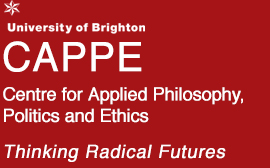14th Jan 2014 6:30pm
The Old Courtroom

6.30-8pm, Tuesday 14 January
The Old Courtroom, 118 Church Street, Brighton, BN1 1UD
Abstract:
Six years after the implosion of the financial system, neoliberalism seems more resilient than ever. Not ‘let[ting] a serious crisis go to waste’ (Philip Mirowski, 2013), neoliberals are busy with their project of subordinating ever more aspects of society to the market. In Britain, long a laboratory of neoliberal policies, one experiment currently underway is that of the ‘Big Society’. David Cameron’s ‘big idea’ four years ago, and one of his party’s flagship policies at the last election, the Big Society now seems passé – but only as an ideology. The Conservative-Liberal-Democrat coalition government, carrying on where its Labour predecessor left off, is attempting to construct this ‘big society’ through the expansion of a social investment market. In our paper, we will explore a number of aspects of the big society’s political economy. We will examine the way the construction of a social investment market goes hand in glove with austerity and is geared towards resolving central aspects of crisis. We look at the specific government policies that are key to its construction and discuss the potential adverse consequences of the financialisation of society. At the same time, we will also stress that the success of this project is far from assured; its future is an open one, dependent upon the actions of many social groups.
Speakers:
Emma Dowling is Senior Lecturer in Sociology at Middlesex University, London. Recent publications include, ‘The Waitress – on Affect, Method and (Re)presentation’ in Cultural Studies-Critical Methodologies (2012) and with D. Harvie, K. Milburn and G. Brown (2013), ‘Careless Talk – Social Reproduction and Fault-lines of the Crisis in the UK’ in the journal Social Justice. She is the co-editor (with R. Nunes and B. Trott) of the special issue of the journal Ephemera on 'Immaterial and Affective Labour: Explored' (2007).
David Harvie is Senior Lecturer in Finance and Political Economy at the University of Leicester, where he is also a member of the Centre for Philosophy and Political Economy. Recent publications include (with G. Lightfoot, S. Lilley and K. Weir), ‘What are we to do with feral publishers?’ in Organization (2012), and (with The Free Association) Moments of Excess: Movements, Protest and Everyday Life, Oakland, CA: PM Press (2011).